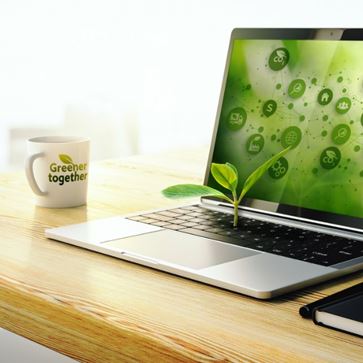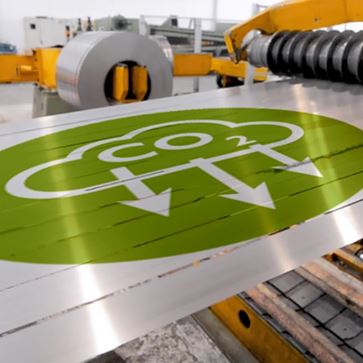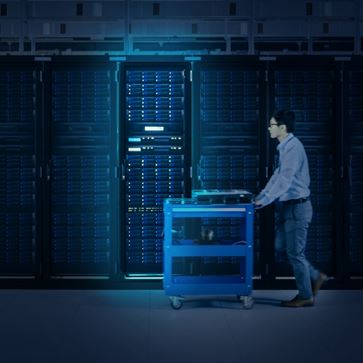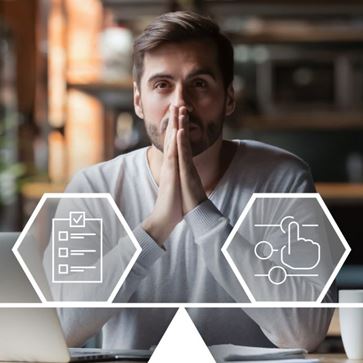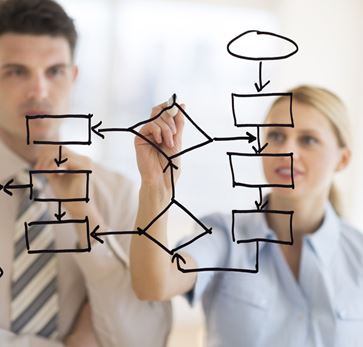
OMP’s sustainability network: promoting Green Planning as a prerequisite of profitability
Bulut Çakmak and Ioana Simon and Qixuan Hou - August 2, 2022
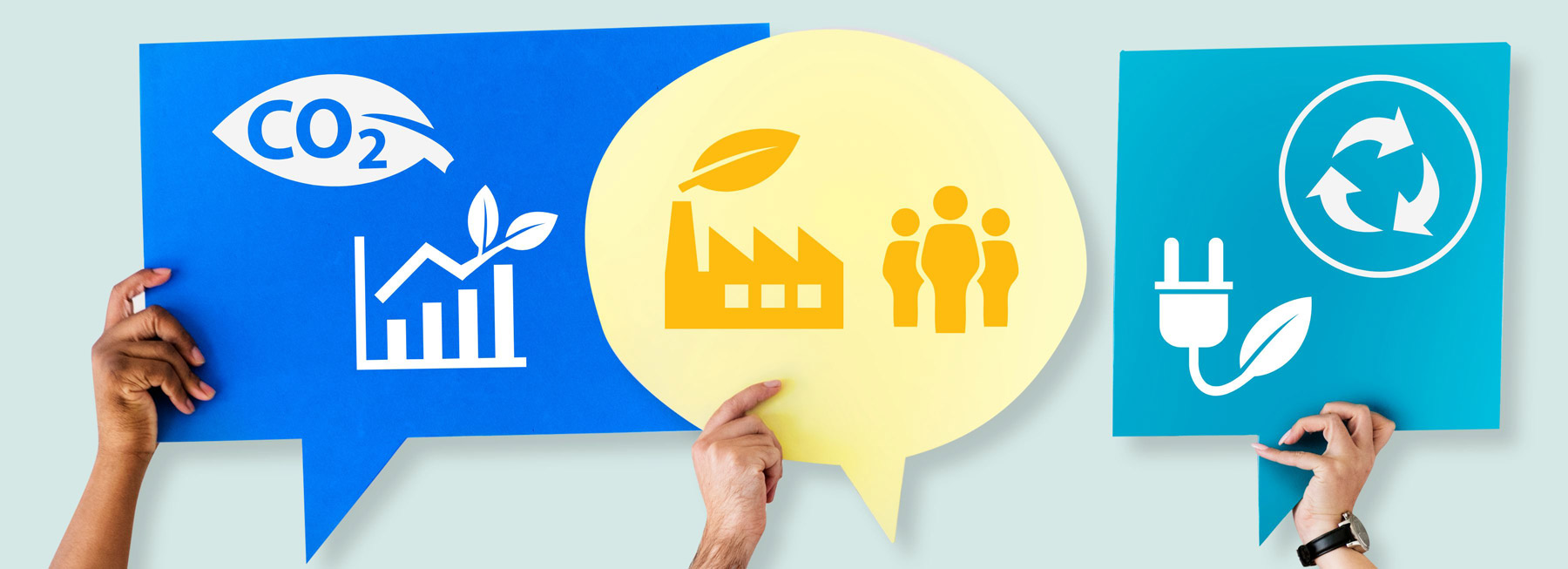
While the basic science and evidence of anthropogenic climate change is no longer a matter of dispute in serious circles, there is lively debate about the required or preferred course of action for individuals, companies, and society as a whole.
At OMP, a few individuals have taken the initiative to create a company-wide sustainability network committed to promoting positive climate action, within the company and beyond. Here’s a conversation between the network’s founding members Ioana Simon, Qixuan Hou, and Bulut Cakmak. It begins with Ioana observing how overwhelming climate change can be.
Ioana Simon: “Individual actions can seem so powerless and insignificant considering the global scale of the problem. But it’s important to act on an individual level if you can overcome the anxiety that climate change brings.”
“I found out that it helps to quantify and compare my actions. I do like to eat a burger, but it turns out that if I do, I use more water than needed for showering 36 times or emit more CO2 than if I drive 58 kilometers by car. While this didn’t lead me to swear off beef altogether, it has helped me eat much less of it and look for greener options.”
Scope for individual action is limited
Blog post
Qixuan Hou: “I recognize the anxiety you’re feeling. I read Greta Thunberg’s collection of speeches ‘No One Is Too Small to Make a Difference’, and the 2018 IPCC report. They state that our CO2 budget for limiting global temperature increase to 1.5°C will be entirely gone by the end of the 2020s if we continue emitting greenhouse gases this way. This is seven years from now!”
“This made me think about my own habits too. When I was in college, I took flying lessons and I’m still regularly flying, just for fun. I must admit that I’ve been thinking about the related carbon footprint only recently. I also drive a lot by car, but that’s mainly because I have very limited alternatives. I live in Atlanta and there’s virtually no public transport here.”
Blog post
Bulut Cakmak: “You’re right, much of it is not your fault. I remember I did an online assessment of my carbon footprint when I went to college in the US. I don’t eat meat and I don’t drive cars but studying in New Jersey meant that I took flights between Turkey and the US four times a year. That resulted in a footprint two-and-a-half times the global average. Individual actions are good but are limited by circumstances beyond our control.”
Way more difficult than the toilet paper issue
Blog post
Ioana: “I do believe a considerable decrease in our standard of living will be necessary, though. Every bit helps, on an individual level as well as on a corporate level. We should never refuse a small step in the right direction, even if it’s not the big step we had in mind. It’s in the hands of the people.”
Bulut: “No, I don’t believe it’s in the hands of individuals! Individuals can eat less meat, use fewer straws, watch more documentaries, and be more mindful about it all. But shaping public opinion proves to be a hell of a task with populists like Trump riling people up everywhere in the world. So instead of focusing on individual actions, we should address the bigger players.”
“I strongly believe that we can have a more significant impact through our work for big corporations. For me, that’s the purpose of this sustainability network at OMP: encouraging our customers to bring climate considerations into their supply chain planning equation.”

Blog post
Qixuan: “I agree, but it’s a huge issue requiring coordinated action of all players. And in this regard, humanity didn’t do well lately. During the pandemic, we saw that human cooperation and planning couldn’t even make sure that everyone would have enough toilet paper. How could we then stop global warming?”
“There is, however, the example of ozone depletion which was signaled in the 1970s and would have had devastating effects such as increased cancer risks and harm to plants and animals. Worldwide cooperation and a universal phasing out of CFCs solved that problem.”
“But climate change for sure is a much more complicated problem. Alternatives for CFCs could be developed fairly easily, but abandoning fossil fuels is a different matter.”
No need for a cyber-hero
Blog post
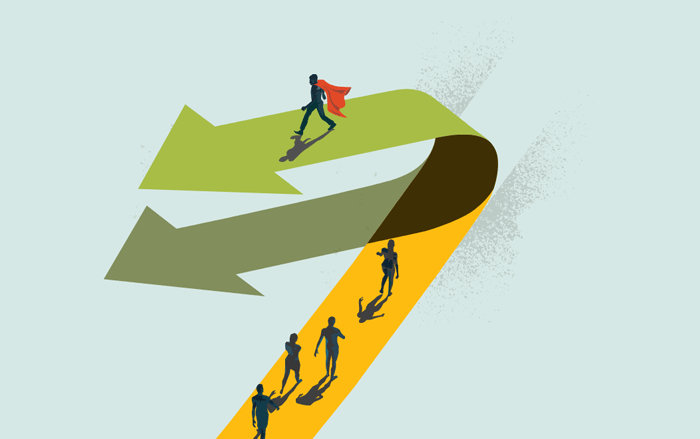
Ioana: “People like Elon Musk are trying to make us believe that technology will come to the rescue, but technology alone will not do the trick. Most analysts say that the technologies are available, but the economy and the global system are not ready to implement them on the scale that’s needed. For example, the war in Ukraine is leading us to increase subsidies for fossil fuels again.”
Bulut: “There’s no silver bullet and there will never be. We don’t need a cyber-Jesus to rescue us. We’re simply not using the technologies as we should. It’s a bit like social media: the technology itself is good, but we’re misusing it. I believe that authorities, at every level of our society, should better incentivize the proper use of climate-related technologies.”
Blog post
Ioana: “Incentivize and educate. Much of it is a matter of visibility: sometimes the only thing stopping us from choosing the greenest option is not knowing what the greenest option is. More than 80% of Americans are willing to make changes in how they live and work to fight climate change. Over 90% of OMP customers have pledged to act more sustainably.”
Greener ways of planning the supply chain
Blog post
Bulut: “That’s where we can have a significant impact because that’s the scale that matters. Many of our customers are giants, and we do provide them with more visibility. We can show them how they could reduce their carbon footprint without compromising profitability. If I could choose between using paper straws or making one of these giants more sustainable, I know where my biggest impact would be.”
Qixuan: “I fully agree. And we should always break down the problem into smaller issues, setting clear and realistic targets. There are a lot of areas in which we can help and promote greener ways of planning the supply chain. We can provide insight into data. We can benchmark scenarios against sustainability criteria. We can encourage companies to standardize processes to reduce waste. You name it.”

Blog post
The discussion generally summarizes the aims of OMP’s sustainability network: to popularize sustainability and Green Planning, both internally and externally. Because sustainability is not the opposite of profitability. It’s the prerequisite.
Find out what Green Planning can do for your business.
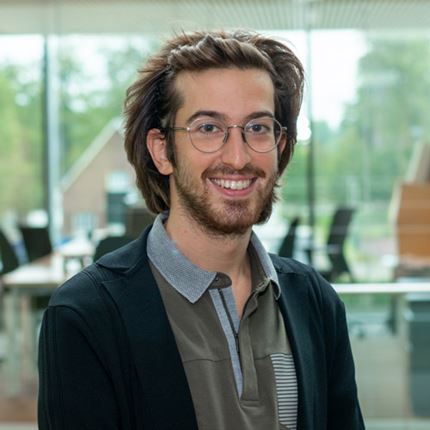
Bulut Çakmak
Consultant
Biography
A recent addition to the Supply Planning team as a consultant, Bulut’s previous experience in healthcare projects convinced him he’s perhaps more of a product development guy. He’s currently working on new functionalities to make the S&OP layer in the OMP Solution better than ever and is often seen dancing in his chair listening to music as he glitch-proofs new features.
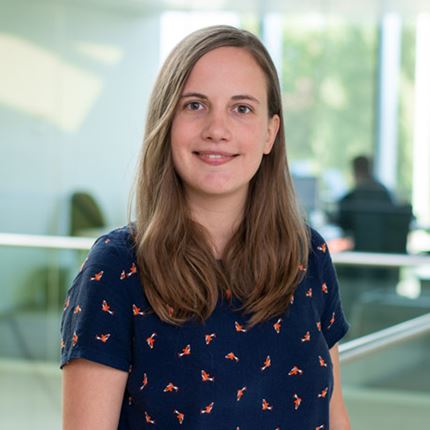
Ioana Simon
Supply Chain Consultant
Biography
Ioana is a consultant in the Solver team. There, she primarily works on the advanced S&OP solver and collaborates closely with project teams to ensure customers get the most out of OMP’s vast solver offering. She is passionate about mathematics and dislikes writing her own biography.
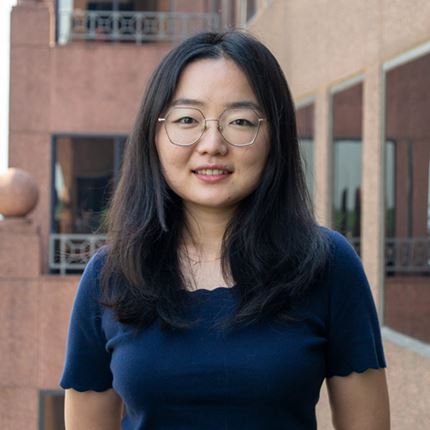
Qixuan Hou
Data Scientist
Biography
Primarily concentrating on demand forecasting, Qixuan works tirelessly to ensure customers get the most from the insights the OMP statistics engine uncovers. She particularly delights in conceiving and implementing action-oriented solutions to complex supply chain problems through collecting, cleansing, and analyzing data.

